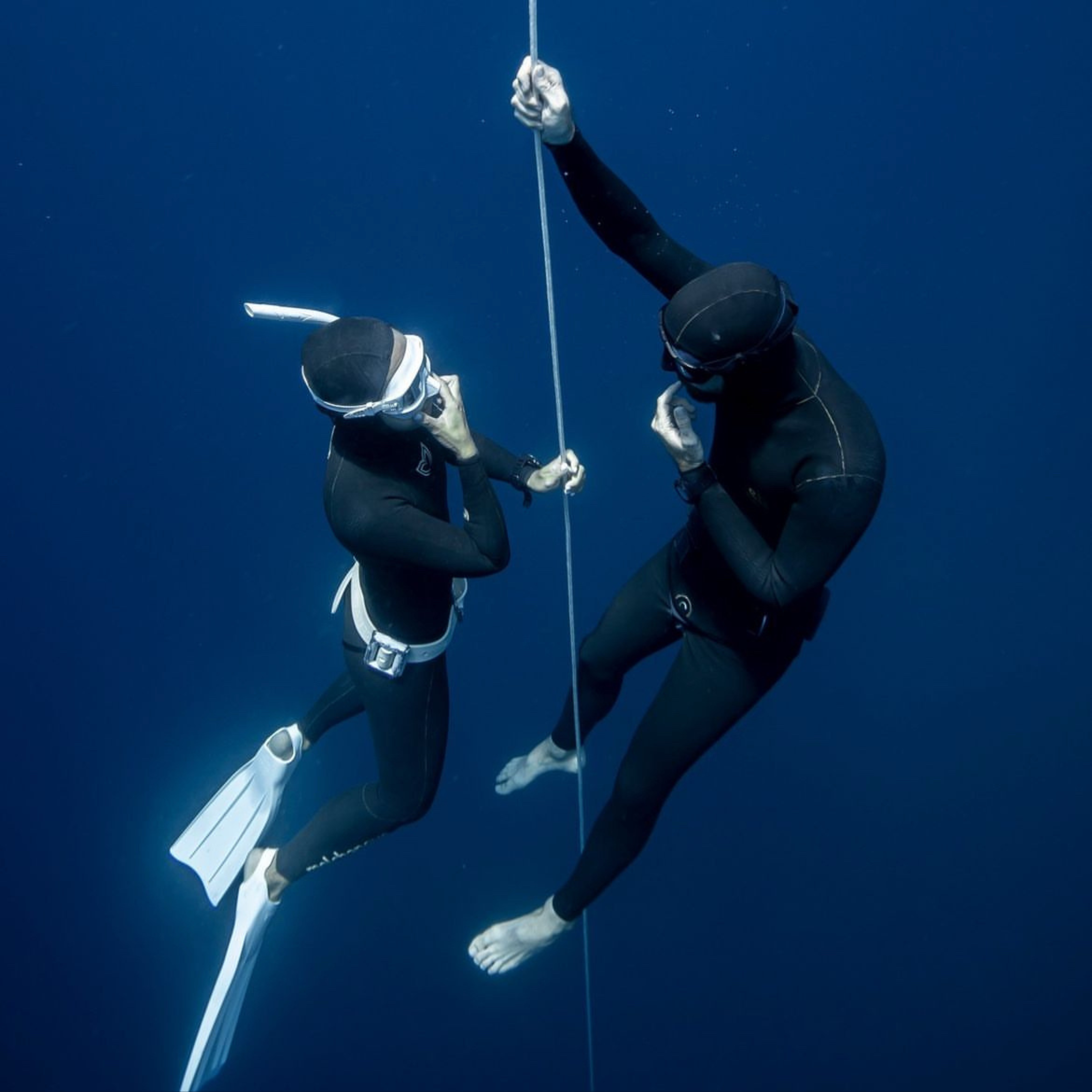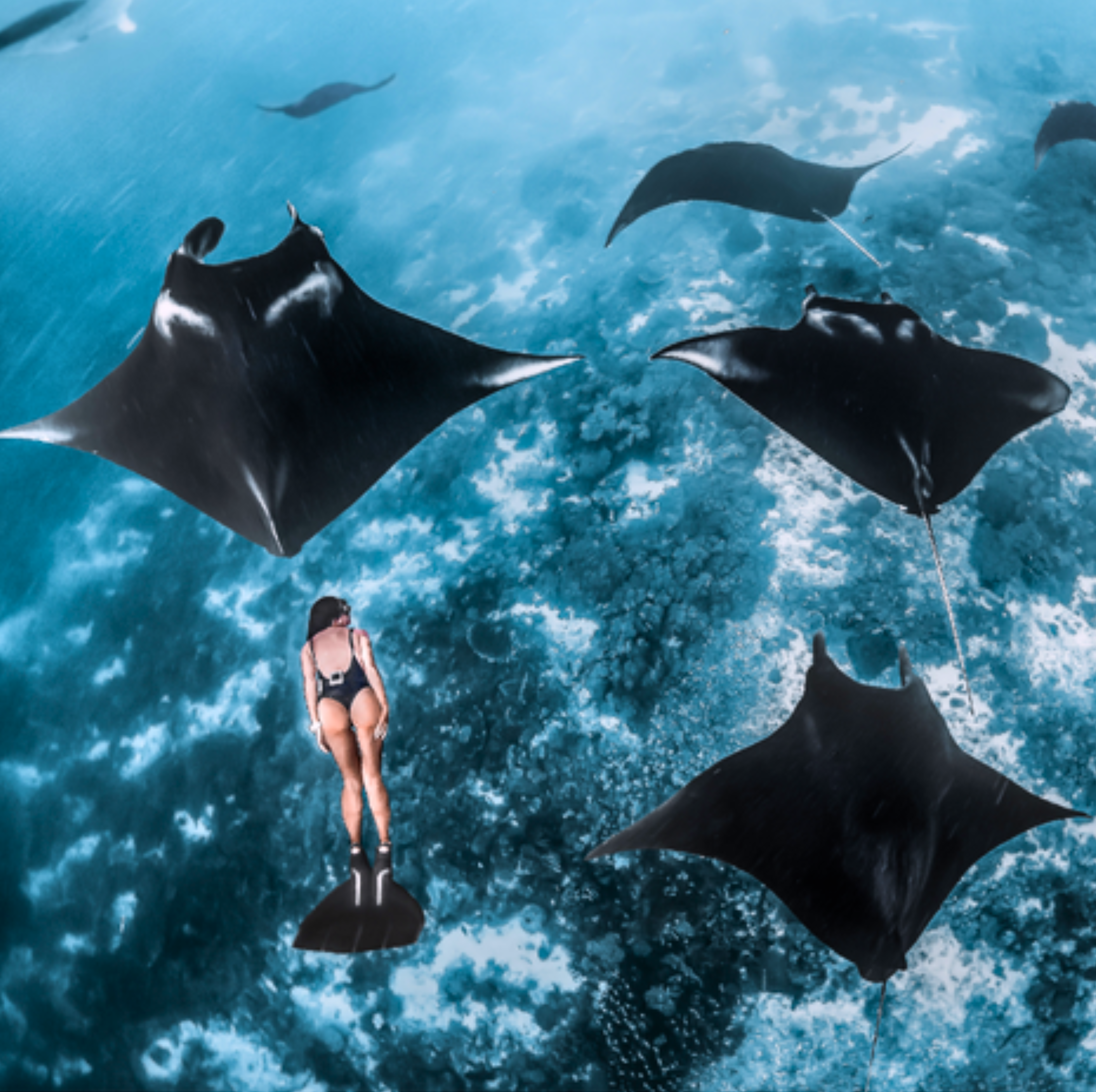Bali
FreedivingWhy Freedive in Amed, Bali
Freediving Bali
Freediving is about connection, not competition. We like to think that the place where you freedive affects how you freedive and East Bali vibes are pretty relaxed.
Why else do we believe Amed, Bali is one of the best places to learn Freediving.
- it’s in warm and clear water.
- It’s in water rich with fish-life and beautiful corals.
- It’s close to shore, with wonderful drop-offs a 3 minutes swim.
- It has a rich and varied underwater topography.
- It is in water with a variety of accessible shipwrecks to play on.
- We’re on an island famous for it’s fascinating culture and the friendliness of the locals.
We could go on, but you get the idea. Having taught freediving on Bali since 2010 we’re pretty biased so why don’t you come and make up your own mind..
FREEDIVING IS STILLNESS IN MOTION
All of these physiological elements are important in creating improved Freediving ability, but probably the most important is the mental aspect.
Learning to understand the games the mind plays and how you can ‘play’ your own mind. That is the aspect we consider to be most important at Apneista Freediving as an exploration of mind/body connection in the ocean.
But for those who’ve wandered on this page looking for a free SCUBA course… what is Freediving ?
The simplest definition means to hold the breath underwater. This could be for any reason, spearfishing, competition or the sheer joy of free underwater movement.
Humans have been freediving since the very start of the human race, but in recent years what humans can achieve without breathing has become truly remarkable, with dives deeper than a 100 meters happening regularly and a world record static breath hold at over 12 minutes.
Freediving Activities
FREEDIVING COURSES
Our Freediving courses (from basic to Instructor level) are personalised and aim to find a balance between the science and the art of Freediving.
As the first freediving school in Bali, we were lucky to get the ideal location for our high-intensity/ low-stress courses.
Come check us out..
WORKSHOPS
We run workshops and lectures on a regular basis, with an emphasis on solid science.
Workhops are mostly related to Freediving, Yoga and Meditation, as we believe these fields are mutually illuminating and offer a fascinating window into human potential.



